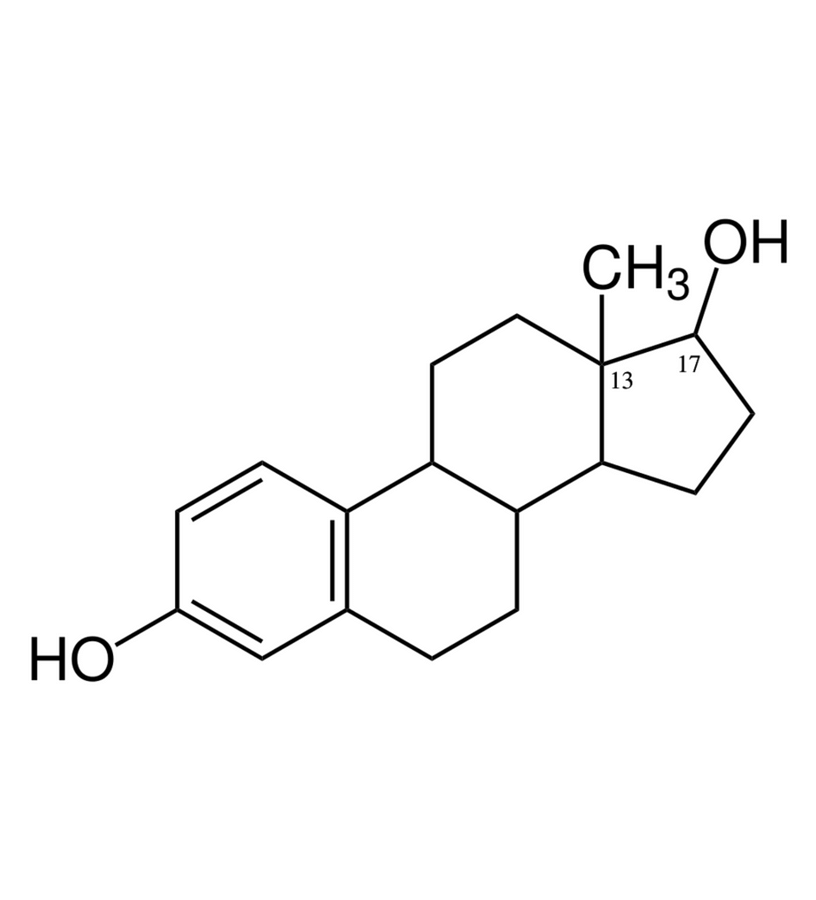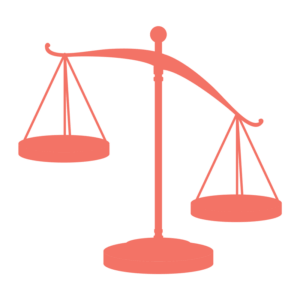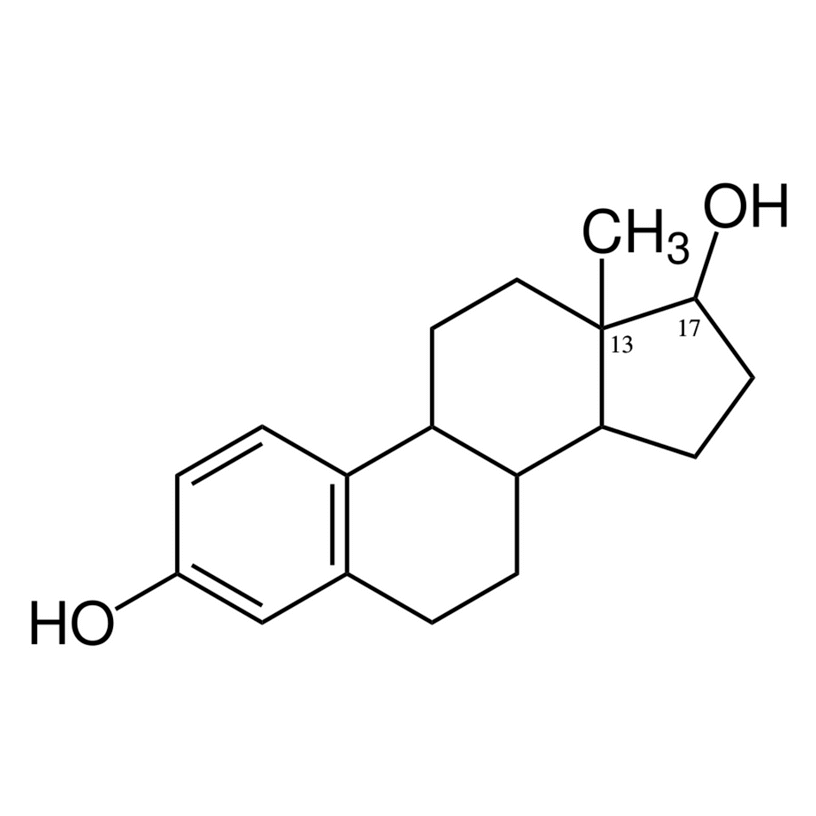What is Estrogen?
When you’re starting to enter perimenopause, the transitional period leading up to menopause itself, there’s no way to escape the word estrogen. (1)
We’ll look today at what estrogen is and why it’s important for your body. We’ll also explore what happens to your estrogen levels during menopause along with various treatment options at your disposal for unbalanced hormones.
What is estrogen, then? Estrogens are sex hormones.
There are 3 hormones in the estrogen group (2):
- Estrone
- Estradiol
- Estriol
These hormones have a pivotal part to play in your reproductive system and menstrual cycle. (3)

Estrogen is the female hormone and testosterone the male hormone. While men and women have both of these hormones, levels of estrogen are higher in females.
Why is estrogen important for your body as a female?
Here’s an eye-opener: according to the award-winning menopause documentary Hot Flash Havoc, estrogen impacts over 400 functions in the female body. Important somewhat understates estrogen’s significance. (12)
Why Your Body Needs It
Estrogen is produced primarily in your ovaries but also in the adrenal gland and fat cells.
During puberty, estrogen plays a central role in promoting sexual development. The way your breasts and body hair grow is down to estrogen. (4)
Once you’re menstruating, estrogen helps limit the way your uterine lining grows during the first part of your cycle. Then, one of 2 things happen…
If the egg is not fertilized, your period will start after estrogen levels sharply drop.
When the egg is fertilized, estrogen works alongside progesterone, another sex hormone, and together they put a stop to ovulation while you’re pregnant.
In addition to its influence on menstruation and pregnancy, estrogen is influential in many other areas…
- Bone Formation: Estrogen is instrumental for optimum bone health. Along with calcium and vitamin D, estrogen helps with the rebuilding of bones. (5)
- Blood Clotting: Blood clotting can be inhibited when estrogen levels are too high. (6)
- Ovaries: The hormone helps to drive growth of egg follicles
- Uterus and Vagina: Estrogen is key for maintenance of the mucous membrane lining your uterus. It also promotes contractions by developing the muscles here. Estrogen in the vagina enhances acidity which in turn leads to fewer bacterial infections
As mentioned there are hundreds of ways in which this hormone affects the female body but they’re outside the scope of today’s article. But specifically, what’s the deal with estrogen during menopause?
Estrogen During Menopause

Starting during perimenopause, levels of estrogen in your body start to rapidly decline. (7)
Your body cries out as the female hormone starts to retreat. From manifestations like vaginal dryness through to the common menopause symptoms of hot flashes, bone loss, fatigue and night sweats, fluctuating levels of estrogen cause a range of effects.
We’ll look now at what happens when you’ve got too much or too little of this female hormone before we explore some of the treatment options at your disposal.
Estrogen Deficiency
While low levels of estrogen can occur for many years, menopause is the most common cause.
We’ll have a look now at what happens when you’ve got too little estrogen and, on the other side of the coin, the effects of too much estrogen in your system. (8)
Common Symptoms of Too Little Estrogen
- Problems with focus
- Fatigue
- Hot flashes
- Fluctuations in mood
- Depression
- Migraines
- Irregular periods
- Vaginal dryness resulting in painful intercourse
- Increase in urinary tract infections
- Issues with bones fracturing or breaking
If you’re concerned about experiencing any of the above symptoms during menopause, make sure you speak to your primary healthcare provider. She will outline the various courses of treatment at your disposal.
Treatment Options for Estrogen Deficiency
If your life is being adversely affected by a lack of estrogen during the change, you have three main avenues of attack…
- Hormone Replacement Therapy: Consider the different types of HRT. Most women take a combination of estrogen and progesterone but if the womb is no longer in place, estrogen alone works well. HRT can be taken continuously or in cycles and in a number of ways (tablets, gels, creams, patches) Undertaking HRT is not something to rush into so speak with your doctor and see if it makes sense for you. (9)
- Lifestyle Changes: You can make many basic lifestyle changes to help you out. From making sensible dietary tweaks and exercising more, through to managing stress levels and prioritizing proper sleep, by taking action you can fight back against the diminishing levels of estrogen in your body. (10)
Natural Supplements: If you need a helping hand, there’s a range of natural supplements on the market. Make sure you get the input of a professional healthcare expert. (11)
Too Much Estrogen
How about if you have the opposite problem and there’s too much estrogen in your system?
One of the significant downsides of estrogen replacement therapy is the fact it can cause your estrogen levels to ratchet up to a potentially problematic degree.
Unbalanced hormone levels can cause any of the following…
- Mood swings
- Fatigue
- Swollen, tender breasts
- Weight gain
- Irregular periods
- More frequent PMS
- Panic attacks and anxiety
- Problems with sleep
- Memory issues
- Cold feet and hands

As with an estrogen deficiency, there’s no substitute for speaking with your doctor if you’re suffering from any of the above symptoms.
Treatment Options for Excessive Estrogen
As with low estrogen, you’ve got a trio of options if levels of your female hormone are too high.
- Medication: If you start experiencing high estrogen when you’re on HRT, your doctor might well adjust your plan. This simple change can help restore balance.
- Surgery: If you’re unfortunate enough to have a cancer sensitive to estrogen, your doctor might recommend removing your ovaries in a procedure called oophorectomy.
- Dietary Changes: Eating a diet rich in fiber and low in fat can help to naturally reduce elevated estrogen levels.
REFERENCES
- https://www.medicinenet.com/script/main/art.asp?articlekey=8943
- https://www.livescience.com/38324-what-is-estrogen.html
- https://www.medicalnewstoday.com/articles/277177.php
- https://www.ncbi.nlm.nih.gov/pubmed/11987895
- https://www.ncbi.nlm.nih.gov/pubmed/25555470
- https://www.stoptheclot.org/learn_more/womens_health_faq.htm
- https://www.menopause.org/for-women/sexual-health-menopause-online/changes-at-midlife/changes-in-hormone-levels
- https://www.medicalnewstoday.com/articles/321064.php
- https://www.nhs.uk/conditions/hormone-replacement-therapy-hrt/
- https://www.healthline.com/nutrition/balance-hormones#section2
- https://www.drdebe.com/articles/safe-alternatives-to-estrogen-replacement
- Hot Flash Havoc. Narration by Goldie Hawn., Dir. Marc Bennett. 2012 Iron Rose Films, 2016. DVD




